Sweet Deception: Can Dogs Eat Sugar? Unpacking the Risks for Your Canine Companion
- 28 Apr 2025 09:21
We love sharing our lives with our dogs, and sometimes that includes sharing food. When enjoying a sweet treat – a cookie, a piece of cake, or even just sweetened yogurt – those pleading puppy eyes can be hard to resist. It might seem harmless to offer just a little taste, leading many pet owners to ask the fundamental question: can dogs eat sugar? While dogs *can* technically ingest sugar, and small amounts might not cause immediate catastrophe (excluding dangerous artificial sweeteners like xylitol), the reality is that sugar offers absolutely no nutritional benefits to dogs and poses significant short-term and long-term health risks. This comprehensive guide, backed by veterinary insights and adhering to EEAT standards, will explore why sugar is detrimental to canine health, the specific dangers it presents, and why it's best kept out of your dog's diet.

Understanding "Sugar": More Than Just White Granules
When we talk about sugar in the context of a dog's diet, it encompasses several forms:
Sucrose: Common table sugar, derived from sugarcane or sugar beets. Found in countless human sweets, baked goods, and processed foods.
Fructose: Fruit sugar, found naturally in fruits, honey, and some vegetables. Also a component of high-fructose corn syrup (HFCS).
Glucose: A simple sugar that is the body's primary source of energy. Found in corn syrup, honey, and as a component of sucrose and starches.
High-Fructose Corn Syrup (HFCS): A heavily processed sweetener common in sodas, candies, and many processed human foods.
Natural Sugars (in moderation): Sugars naturally present in small amounts in dog-safe fruits (like blueberries or apple slices) are generally less concerning *when fed sparingly* as part of a balanced diet, as they come packaged with fiber, vitamins, and water.
Artificial Sweeteners:** This is a critical category. Some, like sucralose or stevia, might cause mild digestive upset but aren't acutely toxic. However, **Xylitol** is EXTREMELY TOXIC and potentially fatal to dogs. Found in many "sugar-free" products.
This guide primarily focuses on the risks associated with added sugars (sucrose, HFCS, etc.) commonly found in human treats and processed foods, as well as the critical danger of xylitol.
Why Sugar Spells Trouble: The Health Risks for Dogs
Dogs are facultative carnivores, meaning their bodies are primarily adapted to derive nutrients from animal proteins and fats. While they can digest carbohydrates, their systems are not designed to handle the high sugar loads common in human diets. Feeding sugar to dogs leads to various health problems:
1. Weight Gain and Obesity
This is perhaps the most obvious consequence. Sugar is packed with "empty calories" – calories that provide energy but lack essential nutrients like protein, vitamins, and minerals.
Caloric Surplus:** Excess sugar calories that aren't immediately used for energy are readily stored as fat.
Obesity Epidemic:** Just like in humans, obesity is a major health crisis in dogs. It significantly increases the risk of numerous serious conditions, including arthritis, heart disease, respiratory problems, certain types of cancer, and overall reduced lifespan and quality of life.
2. Diabetes Mellitus
Consistently high sugar intake can wreak havoc on a dog's metabolism and contribute to the development of diabetes.
Insulin Resistance:** High sugar levels force the pancreas to produce large amounts of insulin to regulate blood sugar. Over time, the body's cells can become less responsive to insulin (insulin resistance).
Pancreatic Strain:** The constant demand can exhaust the insulin-producing cells in the pancreas.
Diabetes Development:** Eventually, this can lead to diabetes mellitus, a condition where the body cannot regulate blood sugar properly. This requires lifelong management, including dietary changes, regular monitoring, and often daily insulin injections. Obesity is a major risk factor for diabetes in dogs.
3. Dental Disease (Cavities, Gum Issues)
Sugar is a primary culprit in poor dental health for dogs, just as it is for humans.
Bacterial Fuel:** Sugar feeds the harmful bacteria naturally present in a dog's mouth.
Plaque and Tartar:** These bacteria produce acids that erode tooth enamel and contribute to the formation of sticky plaque. Plaque hardens into tartar (calculus) if not removed.
Gingivitis and Periodontal Disease:** Tartar buildup irritates the gums, causing inflammation (gingivitis). If left untreated, this progresses to periodontal disease, which destroys the supporting structures of the teeth (gums, ligaments, bone), leading to pain, infection, tooth loss, and potentially allowing bacteria to enter the bloodstream and affect vital organs.
4. Gastrointestinal Upset
A sudden influx of sugar can disrupt the delicate balance of a dog's digestive system.
Osmotic Effect:** Sugar draws water into the intestines, which can lead to diarrhea.
Microbiome Disruption:** It can alter the balance of gut bacteria, potentially causing gas, bloating, cramping, and diarrhea or vomiting.
5. Potential Link to Other Health Issues
Inflammation:** High sugar intake is linked to chronic inflammation throughout the body, which can contribute to various health problems.
Behavioral Changes?:** Some anecdotal evidence suggests sugar highs and subsequent crashes might affect a dog's energy levels and behavior, though this is less scientifically established than the metabolic and dental risks.
Pancreatitis:** While high fat is the primary dietary trigger for pancreatitis, diets high in refined carbohydrates and sugars can contribute to overall metabolic stress and obesity, indirectly increasing pancreatitis risk.
The cascade of negative health effects makes the answer to "can dogs eat sugar?" a clear "they shouldn't."
Natural Sugars in Fruits vs. Added Sugars
It's important to differentiate between added sugars in processed foods and the natural sugars found in dog-safe fruits.
Fruits (in Moderation):** Small amounts of safe fruits like blueberries, strawberries, apple slices (no core/seeds), or watermelon (no seeds/rind) can be acceptable occasional treats. The natural sugars in these fruits come packaged with fiber (which slows sugar absorption), water, vitamins, and antioxidants. Moderation is still key due to the sugar content.
Added Sugars:** Sugars added to cookies, cakes, candy, sweetened sauces, and processed foods offer no accompanying nutritional benefits and deliver a concentrated sugar hit that is detrimental to dogs. These should always be avoided.
The Xylitol Emergency: A Sweetener That is Deadly
This cannot be stressed enough. **Xylitol**, an artificial sweetener found in many "sugar-free" products (gum, candy, peanut butter, baked goods, some medications, and even some unexpected items), is **EXTREMELY POISONOUS** to dogs.
Mechanism:** Even tiny amounts trigger a massive insulin release, causing blood sugar to plummet rapidly and dangerously (hypoglycemia). It can also cause severe liver damage or failure.
Symptoms:** Onset can be rapid (within 15-30 minutes). Signs include vomiting, weakness, lethargy, staggering, loss of coordination, collapse, and seizures.
Action:** **Xylitol ingestion is a critical emergency requiring immediate veterinary intervention.** If you suspect your dog ate *anything* containing xylitol, rush them to the nearest vet or emergency clinic immediately. Do not wait for symptoms.
Always check ingredient labels on any human food product, especially those labeled "sugar-free," before considering even accidental exposure for your dog.
"Just a Tiny Bit?" - Addressing Moderation and Accidents
While a single, tiny crumb of a sugary cookie accidentally dropped on the floor might not cause immediate harm to a large, healthy dog (assuming no xylitol or chocolate), it's crucial to distinguish between rare accidents and deliberate feeding.
No Justification for Deliberate Feeding:** There is no health benefit to giving your dog sugary treats, only risks. Deliberately feeding sugar sets a bad precedent and contributes to negative health outcomes over time.
Cumulative Effects:** Small amounts given frequently add up, contributing to weight gain, dental problems, and metabolic stress.
Accidents Happen:** If an accident occurs, assess what was eaten (check for xylitol!), estimate the amount, and contact your vet for guidance based on the specifics and your dog's health.
Help! My Dog Ate Something Sugary! What Steps Should I Take?
If your dog consumes a significant amount of sugar or eats a product with potentially harmful ingredients: 1. **Identify the Food & Ingredients:** Determine exactly what they ate. **Immediately check the ingredient label for XYLITOL, chocolate, raisins, macadamia nuts, garlic, or onion.** This is the most critical step. 2. **Estimate the Quantity:** How much did they consume? 3. **Prevent Further Access:** Secure the sugary item. 4. **Contact Your Veterinarian or Emergency Pet Clinic IMMEDIATELY if:** * **Xylitol is suspected or confirmed.** This is a life-or-death emergency. Go immediately. * Chocolate (especially dark or baking), raisins, or macadamia nuts were ingested. * A very large amount of sugar was consumed. * The dog is showing any signs of distress (vomiting, diarrhea, lethargy, tremors, seizures, weakness, collapse). * The dog is diabetic or has other underlying health conditions. 5. **Follow Veterinary Advice:** Based on the substance, amount, and your dog's details, they will advise on monitoring, inducing vomiting (only if safe and performed by a vet), diagnostic tests, or treatment. 6. **Monitor Closely (If Vet Advises Home Care):** For minor ingestions of plain sugar (no toxins), watch for vomiting, diarrhea, hyperactivity followed by lethargy, and changes in appetite or thirst. Report any concerns to your vet.
Sugar & Dog Health: A Risk Summary Table
This table highlights the key dangers of sugar for dogs:
| Sugar Type / Health Risk | Concern Level for Dogs | Details & Recommendation |
| Added Sugars (Sucrose, HFCS, etc.) | High Risk / Unhealthy | Contributes to obesity, diabetes risk, dental disease, G.I. upset. Empty calories. Avoid feeding. |
| Natural Sugars (in Fruit) | Low Risk (in strict moderation with safe fruits) | Acceptable as tiny, occasional treats (e.g., blueberry, apple slice). Comes with fiber/vitamins. Moderation essential. |
| Xylitol (Artificial Sweetener) | EXTREMELY TOXIC / DANGEROUS | Causes severe hypoglycemia, liver failure. Potentially fatal. **AVOID ALL PRODUCTS.** Emergency if ingested. |
| Weight Gain / Obesity | High Risk | Sugar provides easily stored empty calories. Leads to serious secondary health issues. |
| Diabetes Mellitus | High Risk (Contributing Factor) | High sugar intake stresses metabolism, increases risk, especially if obese. |
| Dental Disease | High Risk | Sugar feeds oral bacteria, causing plaque, tartar, gum disease, tooth loss. |
| Gastrointestinal Upset | Moderate Risk | Can cause diarrhea, vomiting, gas due to osmotic effects and microbiome disruption. |
| Overall Answer to: Can dogs eat sugar? | No. Added sugars are unhealthy and contribute to significant health problems (obesity, diabetes, dental disease). Artificial sweetener xylitol is deadly toxic. Avoid feeding sugar to dogs. | |
Using Pet Technology for Dietary Awareness: PettureX App
Navigating the complexities of pet nutrition and potential toxins can be challenging. Having quick access to reliable information is key, especially when accidents happen. The **PettureX** app is a smart tool designed to empower pet owners. PettureX offers features like:
24/7 AI Veterinary Consultation: Get immediate, general answers to questions about ingredients or symptoms via AI chat. Ask "Is xylitol poisonous to dogs?" or "What are the long-term effects of sugar on dogs?". This can provide valuable context while you contact your vet. *Remember, AI provides general information and cannot replace a professional veterinary diagnosis or treatment plan.*
Image Recognition for Pet Health:** Assists in identifying visual concerns.
Animal Species Identification:** Useful for identifying potentially harmful plants or substances.
PettureX can serve as a helpful resource for accessing general knowledge quickly, supporting responsible pet care decisions alongside your veterinarian.
Sweet Relief: Healthy Treat Alternatives for Your Dog
There are plenty of ways to treat your dog without resorting to harmful sugar: * **Dog-Safe Vegetables:** Carrots, green beans, cucumber slices, celery, plain cooked sweet potato or pumpkin puree. * **Dog-Safe Fruits (in strict moderation):** Blueberries, raspberries, small pieces of apple (no core/seeds), banana slices, watermelon (no seeds/rind). * **Plain Cooked Meat:** Small pieces of unseasoned chicken, turkey, lean beef, or fish. * **Commercial Dog Treats:** Choose high-quality treats specifically formulated for dogs. Look for limited ingredients, low sugar/salt, and meat-based proteins. Dental chews are also beneficial. * **Puzzle Toys:** Stuff with their regular kibble or a small amount of plain yogurt (if tolerated) or xylitol-free peanut butter for mental stimulation. * **Affection and Play:** Often, your attention and a fun game are the best treats of all!
Conclusion: Keep the Sweet Stuff Away from Your Canine Friend
To definitively answer "can dogs eat sugar?", the clear conclusion from a health perspective is **no**. Added sugars provide no nutritional benefits and contribute directly to serious health issues like obesity, diabetes, and dental disease, while also potentially causing digestive upset. Furthermore, the presence of the deadly artificial sweetener xylitol in many sugar-free human products poses an unacceptable risk. Protect your dog's health by reserving sugary treats for humans and opting for safe, species-appropriate snacks for your furry companion. Read ingredient labels carefully, be vigilant about preventing accidental ingestion (especially of products containing xylitol), and consult your veterinarian if you have any questions about your dog's diet or if an accidental ingestion occurs. A sugar-free approach (aside from tiny amounts of safe fruits) is the sweetest gift you can give your dog's long-term health.
Related
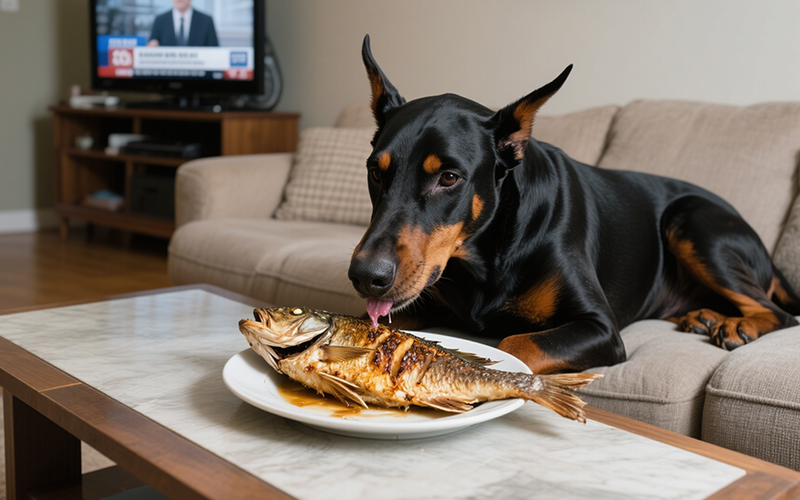
Can Dogs Eat Tilapia? A Deep Dive into Safety, Benefits, and Risks for Your Furry Friend
- 30 Apr 2025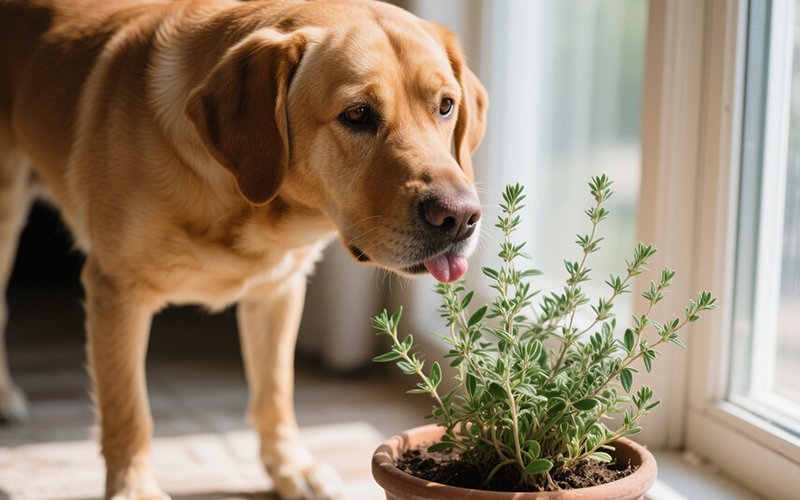
Can Dogs Eat Thyme? The Ultimate Vet-Approved Guide to This Aromatic Herb for Your Canine Companion
- 30 Apr 2025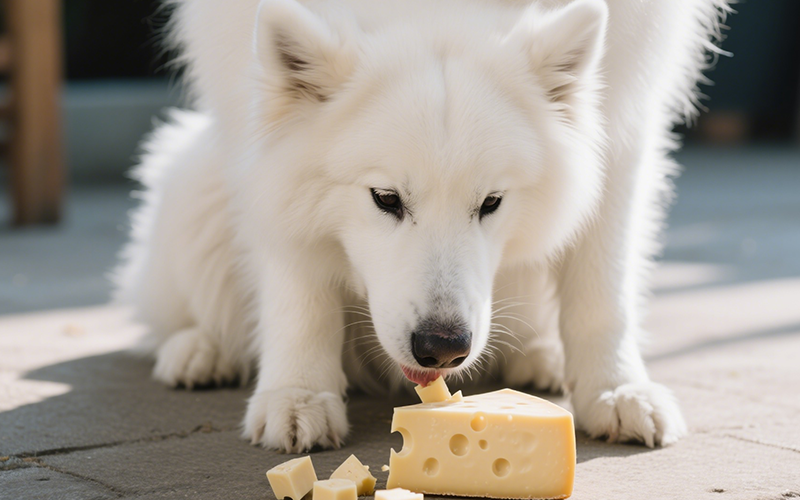
Swiss Cheese & Canines: A Gouda Idea or Potential Problem? Can Dogs Eat Swiss Cheese?
- 29 Apr 2025
Crunch Time: Can Dogs Eat Sweet Peppers? A Colorful Guide to Safety & Benefits
- 29 Apr 2025
The Stick Situation: Why Chewing Sticks is a Risky Game for Dogs
- 28 Apr 2025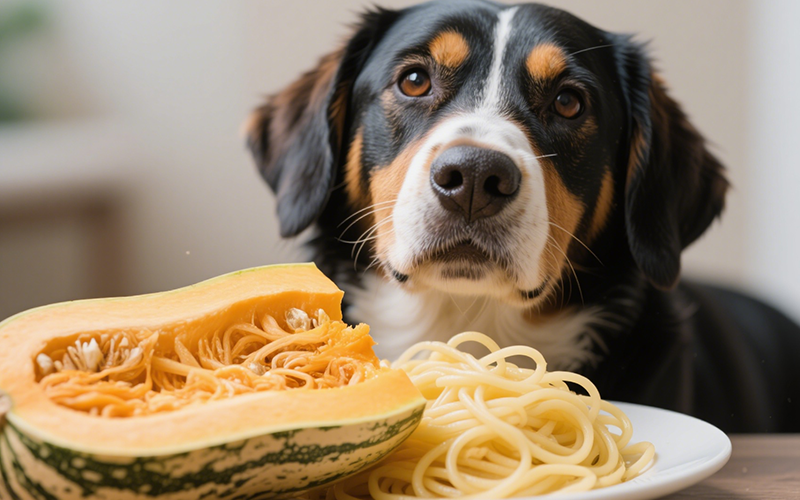
Squash Smarts: Can Dogs Eat Spaghetti Squash? A Vet-Approved Guide
- 26 Apr 2025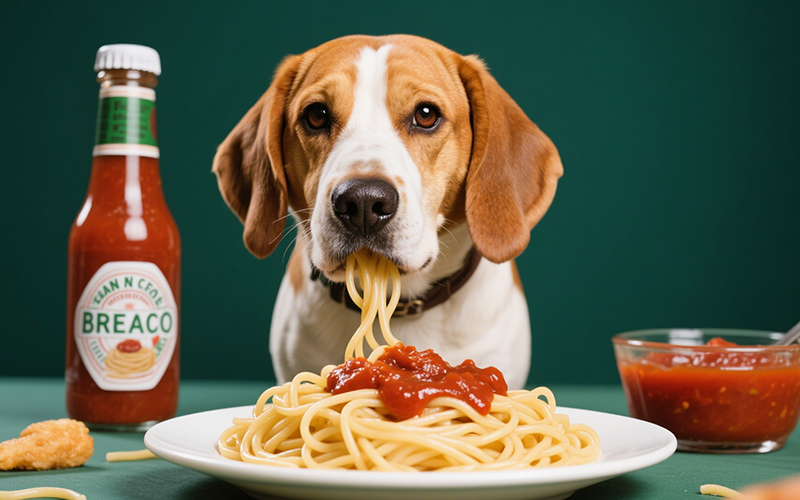
Sauce Inquiry: Can Dogs Eat Spaghetti Sauce Safely? Why Vets Advise Against It
- 26 Apr 2025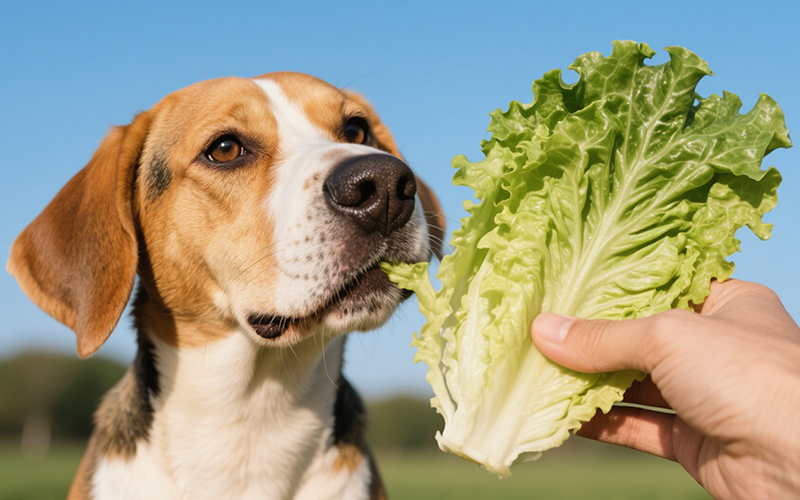
Crunchy Greens for Canines: Can Dogs Eat Romaine Lettuce Safely?
- 25 Apr 2025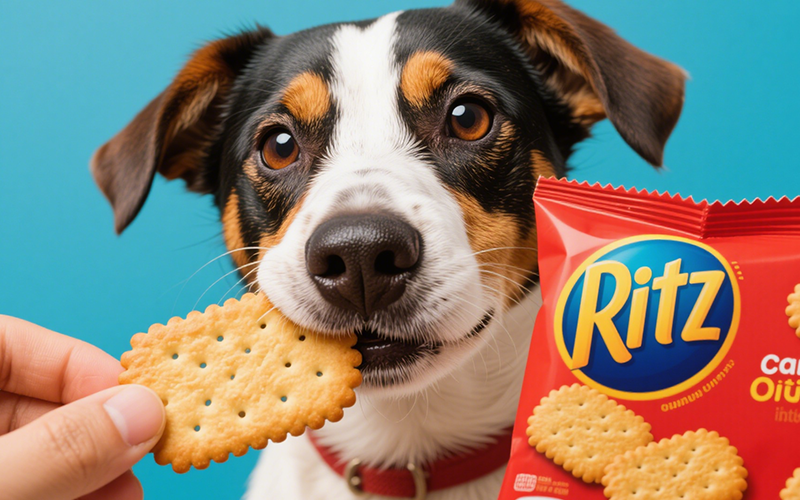
Ritz Crackers for Dogs? Why Vets Say No to This Common Snack
- 25 Apr 2025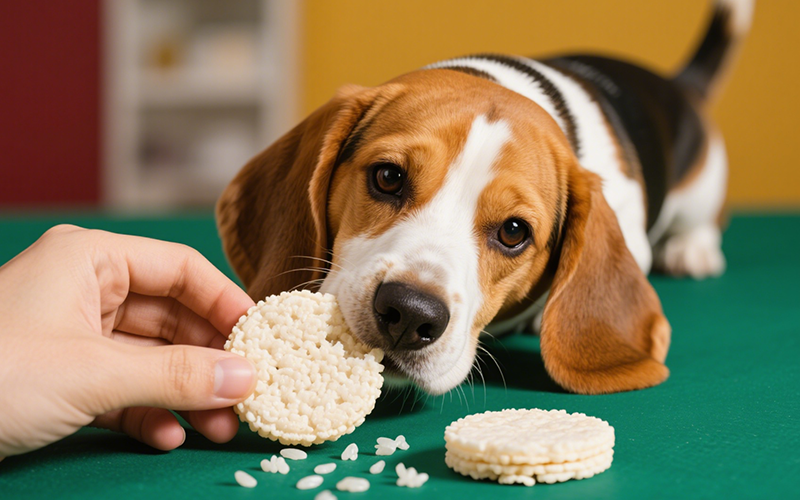
Rice Cakes for Rover? A Crunchy Question: Can Dogs Eat Rice Cakes Safely?
- 24 Apr 2025
